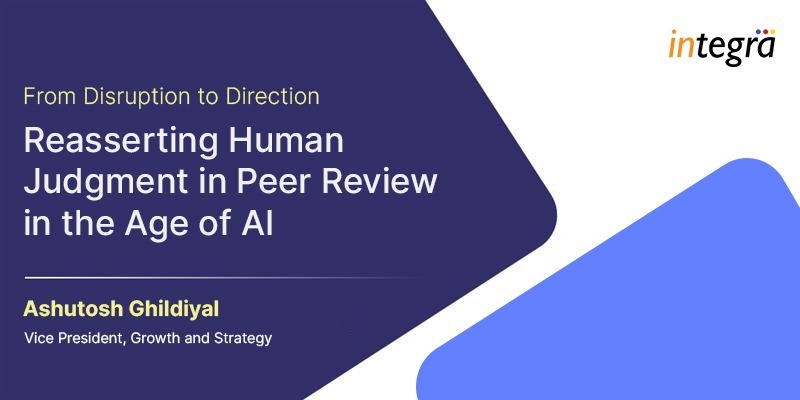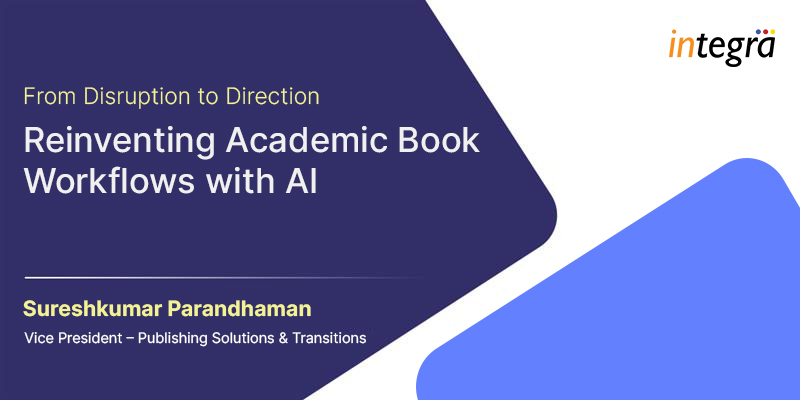Powering Language Quality Assessment in Digital Publishing with AI

The average manuscript acceptance rate stands at a mere 32%, according to research on 2,300 publishers. The study also revealed that large journals could accept even less than 10% of their submissions. There are multiple reasons for rejection and with the volume of manuscripts journals receive, desk rejections (DR) are quite high. Poor language is the second most common cause of outright DR, following closely behind irrelevant topics.
With AI-based first inspections, language quality assessment does not consider the author’s background or linguistic expertise. This further emphasizes the need for authors to deliver manuscripts with a focus on high-quality language; mere salvageability is no longer enough.
Challenges in Maintaining Linguistic Integrity in Digital Publishing
With constantly rising number of research and submissions, journal publishers have largely automated initial screening to streamline the movement of manuscripts from the digital to the manual review stage. Further, limitations in human oversight make relying on technologies such as AI and NLP for the first review essential. Due to a limited reviewer base, publishers enforce stringent language quality checks to eliminate unfit manuscripts at the earliest stage to expedite the process.
But, both quality and quantity of research impact a journal’s reputation. Clarity of text and knowledge conveyance are crucial for research publication. However, language inefficiencies should not become an obstacle to high-quality research being published. This calls for strategically filtering high-research-quality but low-language-proficiency manuscripts by facilitating linguistic improvement rather than outright rejection. This is where AI-based linguistic analytics and assistive editing come into play.
How AI Tools Identify and Rectify Subtle Inconsistencies
Language clarity, consistency, and correctness are all essential for high-quality research publication. Maintaining the flow and correctness of the manuscript are non-negotiable. Here’s how AI is ensuring all this and more.
Automated Proofreading and Grammar Checks
NLP-powered tools enable the analysis of manuscripts based on syntax and semantics. These tools assess and suggest corrections to enhance language quality. Advanced tools even categorize manuscripts to expedite the progress of those with excellent language and schedule ones with poor language for manual editing.
Detecting Inconsistencies in Style, Tone, and Language
Large language models are trained to assess the style, tone, and nuances of the language. They reveal underlying inconsistencies in the message being conveyed and conclusion inferences. By suggesting appropriate corrections, these tools facilitate the alignment of content with the journal’s preferred language style and tone.
Enhancing Scalability and Speed of Language Checks
AI-powered tools expedite the first-proof duration and progress of the manuscript through the editing funnel while eliminating linguistic inaccuracies. These tools reduce assessment time from months to just a few minutes, eliminating human error and bias from the process.
AI-Powered Language Analysis Empowering Publishers
Technology lends speed, flexibility, and impartiality to language assessment. Modern customizable AI tools not only facilitate language assessment and correction but also schematic, flow, and layout improvements. These tools also identify analysis inconsistencies and research gaps to notify authors.
To minimize publishing times while ensuring high language quality, editing automation with AI proves invaluable. At Integra, we pride ourselves on reducing copyediting costs by 40% and delivering 90% accuracy in error identification with our highly customizable and flexible language assessment solution. Contact us now to learn how Integra’s ContentPilot can transform language assessment for your journal.
Recent Blogs

From Disruption to Direction: Reasserting Human Judgment in Peer Review in the Age of AI

Research Integrity vs. Publication Integrity: Clarifying Responsibility in Scholarly Publishing


